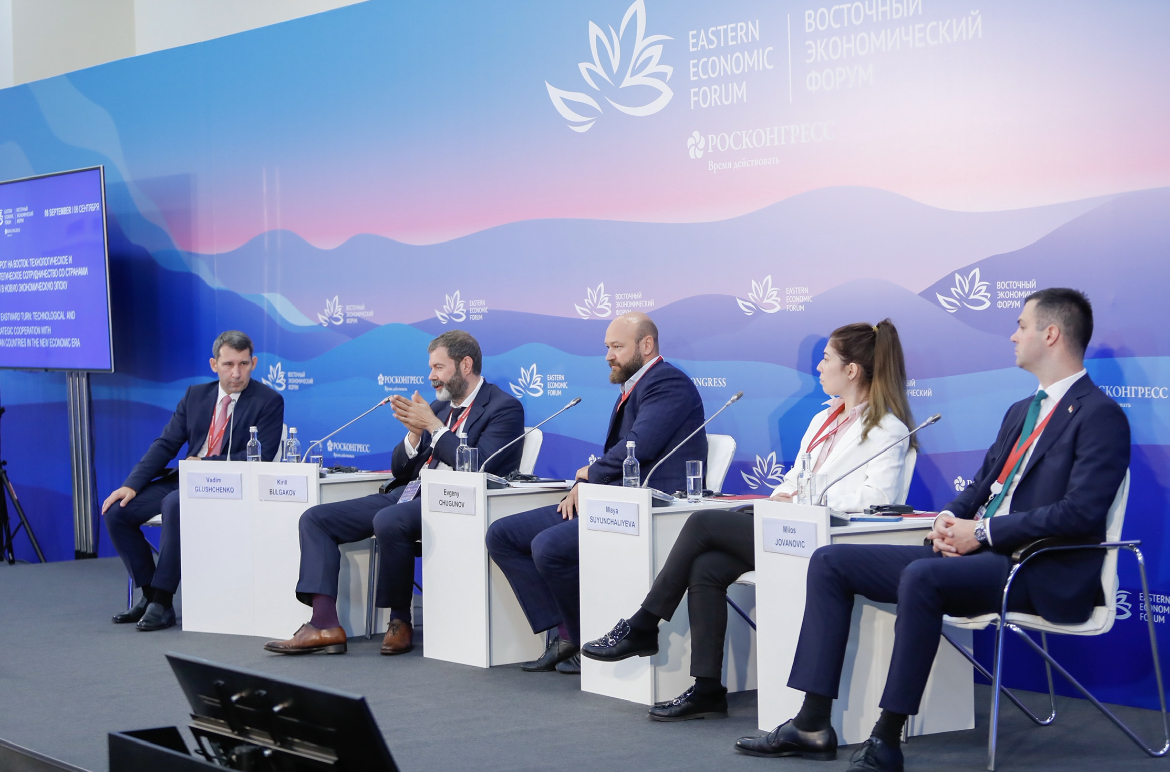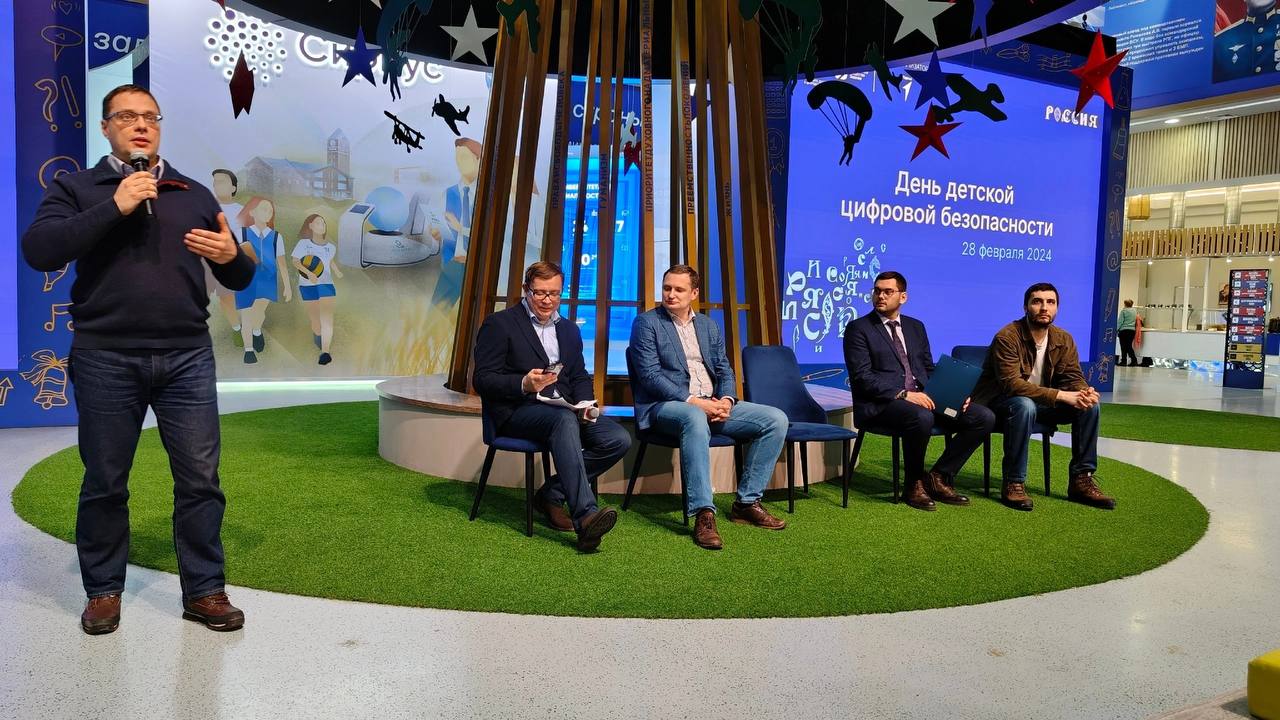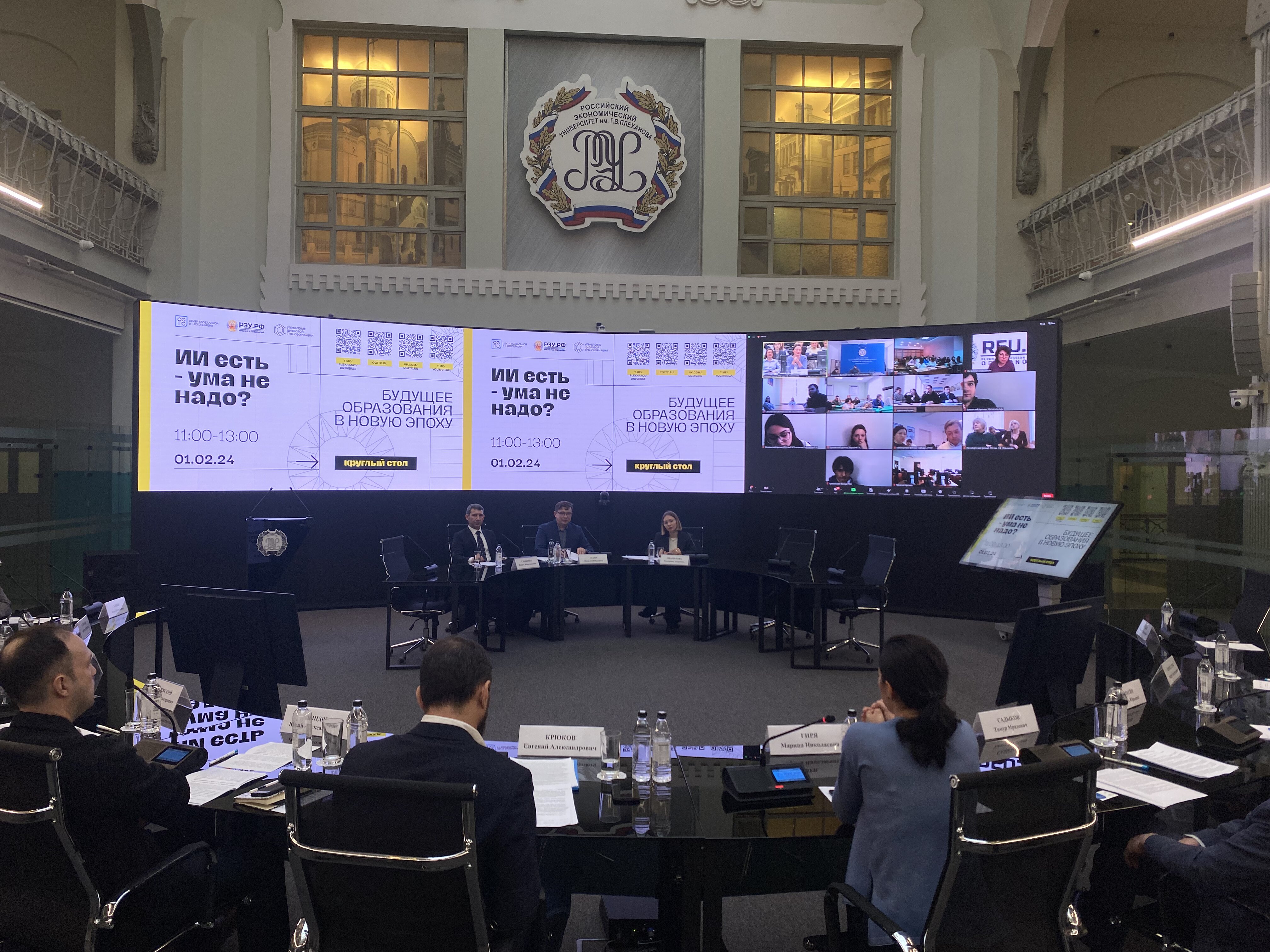First Deputy General Director of the T1 Group Kirill Bulgakov, Production Director of e-legion Artyom Mikhailov, General Director of Cross Technologies Evgeny Chugunov, President of the OpenLink Group Milos Jovanovic, Commercial Director of CITIC Telecom SPS for Europe Elena Chernykh, and Leading Specialist at Kazakhstan Agrarian National University Maya Suyunchaliyeva joined the discussion. The session was moderated by Director of the Center for Global IT-Cooperation Vadim Glushchenko.
Kirill Bulgakov began his speech with an encouraging statement: “People can’t seem to create world-class software in Russia.” Moreover, there is a problem with the promotion of these products, since companies are often reluctant to waste money on such expenses, which, in turn, makes it impossible for them to enter Asian markets. The expert recommended the IT industry players to learn from the industries that have managed to enter foreign markets, such as the Chinese market, despite all the difficulties.
“The main challenge of entering the Chinese market is the regulatory one, and this is a thing all Russian companies willing to enter this market should take into account. Cooperation with China can be established primarily through the One Belt One Road initiative, which is now once again talked about,” Elena Chernykh noted. She also reminded that the growth of the Asia-Pacific region’s economy allows Russia to enter its expanding market, in which demand, especially for IT products, increases every year.
Sharing his experience, Evgeny Chugunov said, “There is a curious tendency for the markets we have recently been observing—Kazakhstan, Uzbekistan—to observe us as well and get interested in localization. Therefore, when it comes to the service industry, one could still enter those markets, but when it comes to software solutions, it’s only possible in terms of production localization. The myth of the Western IT community being more evolved, for instance, in terms of cybersecurity, has been dispelled in the last few months, therefore, the ‘brain’ is probably one of the main advantages of the Russian IT industry.”
Artyom Mikhailov in his speech put emphasis on the differences between Eastern and Western mentalities IT products are influenced by. “We use the following formula: the Chinese is the substance; the Western is for application. The Chinese identity is different from the Western one even in terms of time perception: Chinese people put the past ‘ahead’ and the future ‘behind.’ All novelties, including mobile applications, get filtered through the lens of the past: Europeans are not always accustomed to the way buttons are arranged, and so forth. Another thing that should be taken into consideration by those entering the Chinese market is that, when adapting a product, a simple translation of words is not enough, a semantic equivalent should be used,” he concluded.
Serbian expert Milos Jovanovic shared his view as well, saying, “Asian partners—China, Japan, South Korea—are often dependent on the West, mainly the USA, in terms of technology. Therefore, it is important to establish a new model of cooperation, the one that would not allow any manifestations of neocolonialism, for Asia not to be regarded merely as a sales market and a source of cheap labor. Real sovereignty cannot be achieved without technological sovereignty. Reliance on in-house infrastructure, creation of in-house software and hardware should become the main goals of Eurasian integration. Centers of influence are moving eastwards, and it’s hard not to notice.”
“Cooperation with Russia in the field of digital solutions and product development is very relevant for Kazakhstan today. When it comes to entrepreneurship and startups, the topic of business incubator and accelerator support is especially relevant. A unified platform, that is, a base, is now being created jointly by all universities, which means that business incubator creation and development professionals are now being trained at universities. Today nearly 75 universities that have signed a memorandum with Kazakhstan and now start promoting the IT field among graduates take part in the training. The cooperation we expect to see in the future involves learning from others’ experience and maybe even leading joint projects, which we will implement and showcase in the global arena,” said Maya Suyunchaliyeva, Leading Specialist at Kazakhstan Agrarian National University.
Summing up the session’s results, Vadim Glushchenko noted that the eastward turn is a long-term and steady trend of the IT industry, among other things. It is clear that the Westcentric technological edge model is now obsolete, while the promotion of IT business cooperation with Asian countries and entering this region’s markets look very promising for Russian stakeholders.
The Eastern Economic Forum 2022 takes place on 5–8 September 2022 on Russky Island (Vladivostok). It is a key international platform for establishing and strengthening economic ties, primarily in the Asia-Pacific region. This year’s forum will bring together delegates from over 60 countries. “On the Path to a Multipolar World” is the main theme of the EEF 2022. The program offers over 70 business events, such as panel sessions, roundtables, televised debates, and business dialogues.





